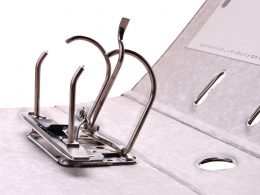A mortgage creditor is a person or institution that, securing its interests, makes a security interest in the debtor’s property. In practice, the mortgage creditor most often becomes banks that provide housing loans. Who else can become one?
We encounter the concept of a mortgage creditor quite rarely, but it occurs in the case of virtually every home loan that is secured by a mortgage. However, this is not the only example of a situation in which a mortgage creditor appears, and it can become not only a bank or other financial institution, but also a public authority, as well as an individual whose interests can be secured by the debtor’s real estate.
Who is a mortgage creditor?
A mortgage creditor is a natural person, a legal entity or a public administration unit that establishes a mortgage on the debtor’s real estate. We usually associate a bank with a mortgage creditor, but it can also be the National Tax Administration, a person entitled to alimony or a public administration body, such as a city hall.
According to the definition, a mortgage creditor is an entity “that acts as one of the parties to a legal relationship resulting in an obligation.” It is worth noting at this point that, based on Article 353 of the Civil Code, an obligation arises when the creditor gains the right to demand from the debtor the fulfillment of a specific performance. In turn, the debtor, on the basis of the contract concluded, is obliged to fulfill this benefit.
We can perfectly illustrate this on the example of popular housing loans, in which the bank, securing its interests, makes a security interest in the financed apartment or house, precisely by creating a mortgage and recording this fact in the real estate register.
Such an entry remains in place until it is deleted, and this occurs only after all obligations under the contract between the borrower and the bank have been paid. Importantly, until the loan is paid in full, the borrower is seen as the debtor, and the bank is seen precisely as the mortgage creditor.
Types of creditors
In Polish legislation we have to deal with several types of creditors. These include, among others, a mortgage creditor, a personal creditor or a maintenance creditor.
A mortgage creditor is a so-called creditor in rem, i.e. one who can assert claims arising from a contract concluded with a debtor on the debtor’s property specified in the contract. It is worth emphasizing at this point that we do not become a debtor only at the moment when we are late with housing loan installments, but already at the moment of concluding the contract – assuming the obligation.
Apersonal creditor is a person or company that can claim its receivables from all the property belonging to the debtor, so not just the apartment or house or other asset, but literally everything in our possession. A personal creditor can also seize without hindrance, for example, wages, pensions, certain benefits or savings.
At this point, it should be noted that a mortgage cred itor / creditor in rem (e.g. bank, tax office, municipality) always has priority over a personal creditor in the execution of a specific asset. When we are talking, for example, about a property on which the bank has mortgaged, then after any foreclosure and sale of this property, it is the material creditor that will be satisfied first. Only later will the personal creditor.
Amaintenance cred itor, on the other hand, is a person who is entitled by a court judgment to receive maintenance. This can be either children, a former spouse or sometimes parents. The alimony creditor, it must be emphasized, has somewhat greater privileges and powers, which is that alimony claims always take precedence over those of personal creditors. Maintenance creditor, can be a mortgage creditor at the same time. This is the case when he wants to protect his interests – to gain certainty of the debtor’s compliance with the court’s decision.
Who can become a mortgage creditor?

.
We already touched on this to a large extent at the beginning of the post, but it’s worth pointing out once again who can become a mortgage creditor. According to current Polish law, as of today, a mortgage creditor can be:
- An individual, such as an alimony creditor who has been ordered to pay alimony.
- Banks, Savings and Loan Associations (SKOKs), any financial institution providing, for example, a home loan, mortgage loan or other obligation secured by a mortgage.
- Companies and enterprises regardless of legal form, so commercial companies, partnerships or sole proprietorships. The only company that cannot become a mortgage creditor is a civil partnership, since claims from the debtor’s assets are claimed separately by the partners in its case.
- A public administration body or other state institution. Thus, a mortgage creditor can be the Tax Office, the Social Insurance Institution, a municipality or a city hall.
You can become a mortgage creditor on the basis of an agreement with the debtor, or on the basis of a court decision or an administrative decision. In the second case, we are dealing with a so-called forced creditor.




